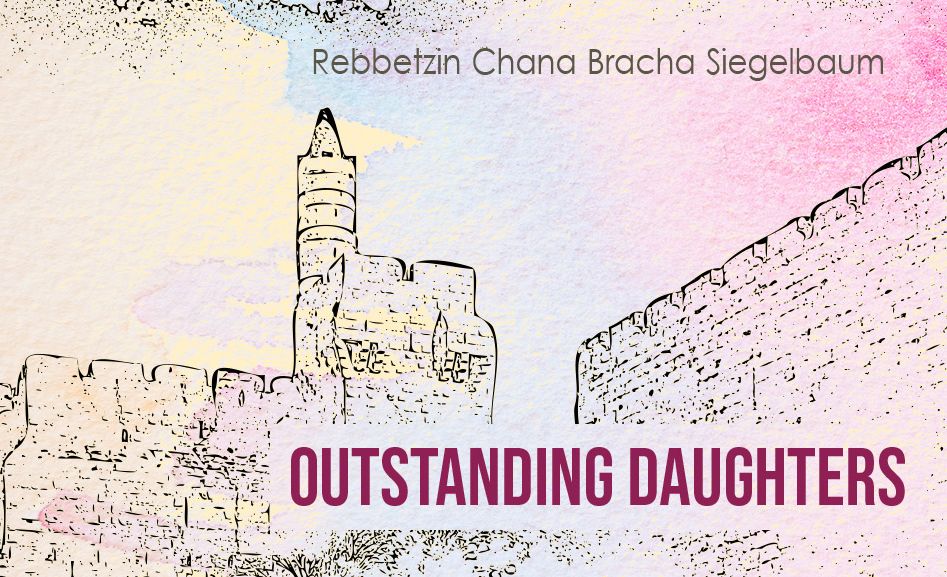
Shoftim: Striving for Peace
Shalom in Hebrew does not denote the absence of opposition and contradiction; on the contrary shalom is the unification of opposites. The main purpose of creation is shalom.

Parshat Shoftim
APPOINT JUDGES TO PREVENT WAR
“Shalom”is the red thread that ties all the points of this week’s parashah together, as Rabbeinu Bachaya writes in his introduction to Parashat Shoftim. The  Torah commands us to appoint judges in order to bring “shalom” to the world and uphold its existence: “Judges and officers shall you make for you in all your gates, which Hashem your G-d gives you, throughout your tribes, and they shall judge the people with righteous judgment” (Devarim 16:18). If not for justice, people would have stolen and killed each other and the world would have been unable to endure. Acting in accordance with the appointed leaders andHashem’s command enables us to eradicate evil from the world. This is the way to bring the End of Days closer, a time when all warfare will be extinguished. As the prophet promises, “He shall judge among the nations, and shall decide among many people, and they shall beat their swords into plowshares and their spears into pruning hooks, nation shall not lift up sword against nation, neither shall they learn war anymore” (Yeshayahu 2:4).
Torah commands us to appoint judges in order to bring “shalom” to the world and uphold its existence: “Judges and officers shall you make for you in all your gates, which Hashem your G-d gives you, throughout your tribes, and they shall judge the people with righteous judgment” (Devarim 16:18). If not for justice, people would have stolen and killed each other and the world would have been unable to endure. Acting in accordance with the appointed leaders andHashem’s command enables us to eradicate evil from the world. This is the way to bring the End of Days closer, a time when all warfare will be extinguished. As the prophet promises, “He shall judge among the nations, and shall decide among many people, and they shall beat their swords into plowshares and their spears into pruning hooks, nation shall not lift up sword against nation, neither shall they learn war anymore” (Yeshayahu 2:4).
 Torah commands us to appoint judges in order to bring “shalom” to the world and uphold its existence: “Judges and officers shall you make for you in all your gates, which Hashem your G-d gives you, throughout your tribes, and they shall judge the people with righteous judgment” (Devarim 16:18). If not for justice, people would have stolen and killed each other and the world would have been unable to endure. Acting in accordance with the appointed leaders andHashem’s command enables us to eradicate evil from the world. This is the way to bring the End of Days closer, a time when all warfare will be extinguished. As the prophet promises, “He shall judge among the nations, and shall decide among many people, and they shall beat their swords into plowshares and their spears into pruning hooks, nation shall not lift up sword against nation, neither shall they learn war anymore” (Yeshayahu 2:4).
Torah commands us to appoint judges in order to bring “shalom” to the world and uphold its existence: “Judges and officers shall you make for you in all your gates, which Hashem your G-d gives you, throughout your tribes, and they shall judge the people with righteous judgment” (Devarim 16:18). If not for justice, people would have stolen and killed each other and the world would have been unable to endure. Acting in accordance with the appointed leaders andHashem’s command enables us to eradicate evil from the world. This is the way to bring the End of Days closer, a time when all warfare will be extinguished. As the prophet promises, “He shall judge among the nations, and shall decide among many people, and they shall beat their swords into plowshares and their spears into pruning hooks, nation shall not lift up sword against nation, neither shall they learn war anymore” (Yeshayahu 2:4). A CHANCE FOR ALL TO MAKE PEACE
Parashat Shoftim teaches us the greatness of “shalom” through the mitzvah of giving our enemies a chance to surrender and make peace before waging war: “When you approach a city to fight against it, then proclaim peace unto it” (Devarim 20:10). Rabbeinu Bachaya explains that the mitzvah of offering the enemy nation a chance to make peace applies to any city and any kind of war (even a war of mitzvah), with the exception of the war against Ammon and Moav about whom it states: “do not seek their peace” (ibid. 23:7). However, if they offer to make peace on their own initiative, we accept it even from them. “See how great is the power of peace, that we are required to extend it even to those who hate G-d.” From the verse, “There was not a city that made peace with the children of Yisrael, except for the Chivi, who dwelled in Givon” (Yehoshua 11:19), it is understood that Yehoshua gave all the people a chance to make peace, but they refused (Midrash Tanchuma, Shoftim 18).
GREATER THAN TRUTH
For the sake of “shalom” it is of uttermost importance that all Israel be united under the authority of their judges. “According to the word of the law which they shall teach you, and according to the judgment they shall tell you, you shall do. You shall not depart from the word which they shall tell you, to the right nor to the left” (Devarim 17:11). Rashi comments that you must follow the judge, even if he tells you that right is left and that left is right. How much more so if he says that right is right and left is left. This teaches us that we are expected to compromise truth for the sake of peace. Similarly, Sefer Hachinuch concludes that we are required to follow our Sages even when they make a mistake. For it is better to suffer one mistake and surrender to the authority of their great knowledge, than to have each individual act according to what is straight in his own eyes. We are, likewise, required to extend the principle, “Peace is greater than Truth” for the sake of “shalom bayit” between husband and wife. Thus, when G-d addressed Avraham, He changed the words of Sarah, to prevent any bad feelings from arising between them. (See our teaching on Parashat Vayera)
SHALOM -THE UNIFICATION OF OPPOSITES
The Hebrew word “shalom” is not identical with its English translation: “peace” which refers to the absence of war and tumult. When people say, “Leave me in peace!” they mean, “Leave me alone, don't disturb me! Let me have my own piece of quiet.” The Hebrew term “shalom” does not denote the absence of opposition and contradiction; on the contrary shalom is the unification of opposites. The main purpose of creation is shalom. For this reason, everything was created in perfection and wholesomeness. The heavens were created first and they are called “shamayim” because they consist of “esh” (fire) and “mayim” (water) which are opposites and the only way they can be connected is through shalom. This is the meaning of “He makes shalom above” (Iyov 25:2).
ALL IS COMPLETED IN SHALOM
Maharal reveals that shalom is the connection between the parts that unify everything (Netivot Olam, Netiv HaShalom, 1). When a person lives in peace with others, everything is whole. Since shalom effects completeness, it concludes every blessing. The completeness of the world is Shabbath, which is associated with shalom. For this reason, we light the candles for the sake of “shalom bayit” at the onset of Shabbath (Mishnah Berurah 263: 30).
UNIFICATION OF MALE AND FEMALE IS BEYOND NATURE
The unification of man and woman in the bond of marriage is not necessarily peace in the English sense of “leave me in peace, don't bother me.” That kind of peace is best achieved when a person is alone. Although one aspect of shalom is when each person stands in his sphere without entering the boundary of his fellow, the “shalom bayit” of the Jewish home involves the unification of the opposite male and female energies; in the same way that Hashem unifies the heavens that consist of the opposing elements of fire and water. This unification does not conform to the ways of nature. The achievement of shalom lifts us above our existence in the physical world and connects us with the spiritual realm. When there is shalom between man and woman, the Shechina is between them. This implies that they are able to lift themselves up above their mere physical existence while drawing down the Shechina from the upper world to unite with the lower world. This unification is the middle world of shalom which stands between [and effects the boundary of] the upper and the lower world.
SHECHINA BETWEEN THEM
When we walk in the way of Torah and justice, every step on our individual path is connected with the universal truth of the Torah way. Each of our individualities merges to form a whole, wherein we all recognize and know the limits of our own and others’ spheres. In this way, the union of our marriage becomes a unification of upper and lower worlds as Rabbi Akiva teaches, “when man and woman come together in holiness the Shechina is between them” (Sota 17a).
(Rebbetzin Chana Bracha Siegelbaum is Director of Midreshet B’erot Bat Ayin in Gush Etzion. This article is an excerpt from her book Women at the Crossroads: A Woman’s Perspective on the Weekly Torah Portion, reviewed by The Jerusalem Post, The Jewish Press, Voices Magazine, Good Reads, and WordPress/JewishPress and more. To order this book, click here)











Tell us what you think!
Thank you for your comment!
It will be published after approval by the Editor.